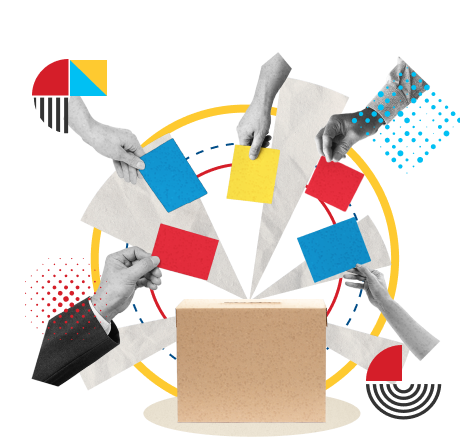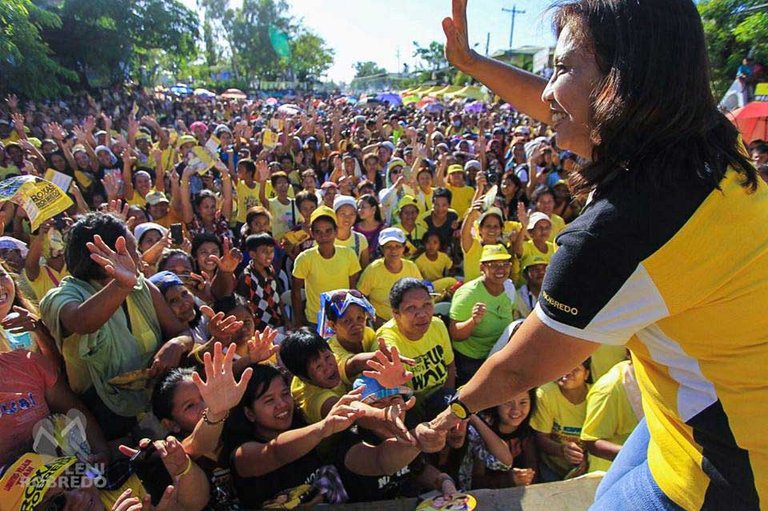2025 Philippine Mid-Term Elections With The Help of Social Media


Photo is from the INQUIRER.net

Social media is everywhere these days, and it’s playing a big role in shaping the Philippines’ political future. With over 92 million Filipinos using platforms like Facebook, TikTok, YouTube, and more, it’s clear that these spaces are where many people get their news and form opinions. As the 2025 elections approach, it’s important to understand how social media affects us and what we can do to use it wisely.
Social media started making waves in Philippine politics during the 2016 elections. Back then, platforms like Facebook and Twitter weren’t just for sharing selfies, candidates used them to spread their messages and connect directly with people. This was especially true for younger voters who spend more time online.
 Photo source: The Asia Foundation
Photo source: The Asia FoundationFormer President Rodrigo Duterte, who ran for president in 2016, used viral videos, memes, and livestreams to grab attention and share his ideas, and the winning of Leni Robredo as the Vice President with her fostering authentic connections with individuals, empowering supporters to amplify her message, and effectively combating disinformation. Many people supported them because they felt like the winning politicians was talking to them directly. Since then, social media has become a go-to tool for politicians to reach voters.
In the 2022 elections, candidates teamed up with popular YouTubers and influencers to promote their campaigns. These collaborations helped them get their message across to millions of followers without relying on traditional news outlets.
 Photo by Philip Oroni on Unsplash
Photo by Philip Oroni on UnsplashSocial media is amazing, but it also has a dark side: fake news. Some people use it to spread lies and trick others. This became a huge problem during the 2022 elections when false claims about election fraud and fake scandals went viral. They took advantage of the low media literacy among numerous social media users and utilized algorithms to spread rapidly. The prevalent belief in these narratives influenced the public's perception of the candidates and illustrated how disinformation could sway elections that shape the current government of the Philippines now.
Social media can sometimes make arguments worse. Algorithms tend to show us posts that match what we already believe, so we end up in echo chambers. This can lead to fights online and make it harder for people to see other perspectives.
Politicians use ads on platforms like Instagram and Facebook to target specific groups. For example, in 2022, first-time voters and overseas Filipino workers saw special ads tailored just for them. While this is a smart strategy, it raises questions about privacy and whether we’re being manipulated.
On the bright side, social media can help us learn more about the elections. Campaigns like Vote Pilipinas and Fact Check Philippines use these platforms to share important information and bust myths. This makes it easier for people to make informed choices.
A lot of people still don’t know how to spot fake news. Groups like the Foundation for Media Alternatives run workshops to teach communities how to tell if something online is true or not. However, these efforts don’t always reach everyone, especially in rural areas.
Everyone can help fight fake news and make social media a better place. Before we share a post, check if it’s from a reliable source. Look at the website’s URL and see if other trusted outlets are reporting the same thing. If you see something suspicious, report it. Platforms like Facebook and Twitter have tools for flagging fake accounts and misleading posts. Organizations like Rappler and Bantay Halalan work hard to verify information. Following them can help you stay informed. If someone you know shares fake news, kindly explain why it might not be true. You’ll be helping them make better decisions.
 Photo by Ravi Sharma on Unsplash
Photo by Ravi Sharma on UnsplashSocial media isn’t just for fun, it’s also a powerful tool that can shape the future of our country. As the 2025 elections get closer, remember that your voice matters. By being informed and responsible online, you can help make sure that social media is used for good, not harm. After all, the future belongs to you, so let’s make it a future we can all be proud of.

Thank you for reading this simple blog of mine. I truly appreciate the community. Hoping for the future of Web3 applications that support the ideas of the people.

ALEXIS
Welcome to my blog. I'm just a simple staff in the service industry, currently doing the things that my inner child wants in life. Mostly self-taught in the things that gave me the purpose to learn more about the digital world that led me to this awesome community.

Hopefully the activities run smoothly
Hope all goes well. 🙏🙏🙏